By Ray Bennett
LONDON – Rachel Weisz was named best actress in a play as Blanche DuBois in “A Streetcar Named Desire” (for which Ruth Wilson, pictured left with Weisz, was named best supporting actress) and Mark Rylance (pictured below) won as best actor for “Jerusalem” in the 2010 Laurence Olivier Awards presented Sunday evening.
“The Mountaintop” saw American Katori Hall become the first black female playwright to win the Olivier for best new play while Broadway transfer “Cat On a Hot Tin Roof” was named best revival.
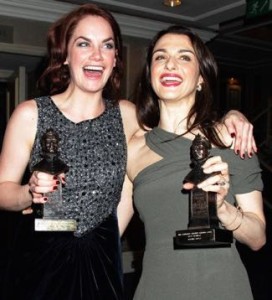 In musical honors, Broadway hit but London flop “Sweet Awakening” was named best new show with the production’s Aneurin Bernard winning as best actor and Iwan Rheon for best supporting performance. “Hello Dolly!” won as best musical revival with Samantha Spiro named best actress in the title role and Stephen Mear best choreographer. “Wicked” picked up the audience award for most popular show while Michael Wynne’s “The Priory” won the best new comedy award and Tim Whitnall’s “Morecambe” won as best entertainment.
In musical honors, Broadway hit but London flop “Sweet Awakening” was named best new show with the production’s Aneurin Bernard winning as best actor and Iwan Rheon for best supporting performance. “Hello Dolly!” won as best musical revival with Samantha Spiro named best actress in the title role and Stephen Mear best choreographer. “Wicked” picked up the audience award for most popular show while Michael Wynne’s “The Priory” won the best new comedy award and Tim Whitnall’s “Morecambe” won as best entertainment.
The British equivalent of the Tony Awards came as West End theater celebrated its best ever year in 2009 with box office receipts topping £500 million ($751 million) for the first time with attendance breaking records at 14.26 million, up 5.5% from the previous year.
The awards, presented by the Society of London Theatre, were handed out a gala banquet at the Grosvenor House Hotel with presenters including Jude Law, Kim Catrall, James Earl Jones, Rupert Friend and Rosamund Pike. Two-time Academy Award winner Maggie Smith received a special award and the evening included performances from hit shows “Priscilla, Queen of the Desert,” “Sister Act,” “Blood Brothers” and “Les Miserables,” celebrating its 25th anniversary.
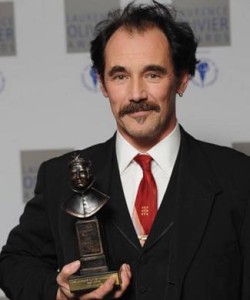 Oscar-winner Weisz was honored for the Donmar Warehouse revival of Tennessee Williams’ “A Streetcar Named Desire,” which also earned Ruth Wilson (2008 Golden Globe nominee in the title role of BBC miniseries “Jane Eyre”) the prize for best supporting performance, playing Stella. Rylance, who won the 2008 best actor Tony Award for “Boeing-Boeing,” won as the patriarch of an unruly family in Jez Butterworth’s comedy “Jerusalem.”
Oscar-winner Weisz was honored for the Donmar Warehouse revival of Tennessee Williams’ “A Streetcar Named Desire,” which also earned Ruth Wilson (2008 Golden Globe nominee in the title role of BBC miniseries “Jane Eyre”) the prize for best supporting performance, playing Stella. Rylance, who won the 2008 best actor Tony Award for “Boeing-Boeing,” won as the patriarch of an unruly family in Jez Butterworth’s comedy “Jerusalem.”
The play, which is sold out at the Apollo Theatre following an acclaimed term at the Royal Court, was heavily favored to win for best new play but lost to Hall’s second play, “The Mountaintop.” It follows Martin Luther King on the night before his assassination and had a nine-week run at London’s Trafalgar Studios.
Hall’s play also triumphed over John Logan’s “Red”, a hit Donmar production about artist Mark Rothko, which opens at Broadway’s John Golden Theater on April 1, and Lucy Trebble’s “Enron,” about the company’s financial meltdown, which is in a sold-out run at London’s Noel Coward Theatre and opens at the Broadhurst Theatre on April 27.
Eddie Redmayne (Angel in the BBC’s 2008 miniseries “Tess of the D’Urbervilles”) won the Olivier for best supporting performance for “Red” and he joins Alfred Molina in the Broadway production while Rupert Goold, who directed “Enron” in the West End and also on Broadway, won the Olivier for best director.
“Cat On a Hot Tin Roof” closes at the Novello Theatre on April 10 following a successful run with some of the Broadway cast including James Earl Jones as Big Daddy and Phylicia Rashad as Big Mama.
Best new musical “Sweet Awakening,” which picked up eight Tony Awards as a Broadway hit, earned great critical praise in the West End, but it closed after a short run at the Novello. Best musical revival “Hello Dolly!” had a hit summer run at the Regents Park Open Air Theatre.
This review appeared in The Hollywood Reporter.
WINNERS OF THE 2010 LAURENCE OLIVER AWARDS
BEST ACTRESS
Rachel Weisz for A STREETCAR NAMED DESIRE at the Donmar
BEST ACTOR
Mark Rylance for JERUSALEM at the Jerwood Theatre Downstairs at the Royal Court and now at the Apollo
BEST ACTRESS IN A SUPPORTING ROLE
Ruth Wilson for A STREETCAR NAMED DESIRE at the Donmar
BEST ACTOR IN A SUPPORTING ROLE
Eddie Redmayne for RED at the Donmar
BEST NEW PLAY
THE MOUNTAINTOP by Katori Hall at Trafalgar Studios 1
BEST NEW COMEDY
THE PRIORY by Michael Wynne at the Jerwood Theatre Downstairs at the Royal Court
BEST MUSICAL REVIVAL
HELLO DOLLY! book by Michael Stewart, music and lyrics by Jerry Herman, based on the play ‘The Matchmaker’ by Thornton Wilder at the Open Air
BEST NEW MUSICAL
SPRING AWAKENING music by Duncan Sheik, book and lyrics by Steven Sater, based on the play by Frank Wedekind at the Novello
BEST ENTERTAINMENT
MORECAMBE by Tim Whitnall at the Duchess
BEST ACTRESS IN A MUSICAL OR ENTERTAINMENT
Samantha Spiro for HELLO DOLLY! at the Open Air
BEST ACTOR IN A MUSICAL OR ENTERTAINMENT
Aneurin Barnard for SPRING AWAKENING at the Novello
BEST SUPPORTING PERFORMANCE IN A MUSICAL OR ENTERTAINMENT
Iwan Rheon for SPRING AWAKENING at the Novello
BEST DIRECTOR
Rupert Goold for ENRON at the Jerwood Theatre Downstairs at the Royal Court and now at the Noel Coward
BEST REVIVAL
CAT ON A HOT TIN ROOF directed by Debbie Allen at the Novello
BEST THEATRE CHOREOGRAPHER
Stephen Mear for HELLO DOLLY! at the Open Air
BEST LIGHTING DESIGN
BURNT BY THE SUN designed by Mark Henderson at the Lyttelton
BEST SET DESIGN
JERUSALEM designed by Ultz at the Jerwood Theatre Downstairs at the Royal Court and now at the Apollo
BEST COSTUME DESIGN
PRISCILLA, QUEEN OF THE DESERT- THE MUSICAL designed by Tim Chappel and Lizzy Gardiner at the Palace
BEST SOUND DESIGN
SPRING AWAKENING designed by Brian Ronan at the Novello
THE AUDIENCE AWARD FOR MOST POPULAR SHOW
WICKED music and lyrics by Stephen Schwartz, book by Winnie Holzman at the Apollo Victoria
OUTSTANDING ACHIEVEMENT IN AN AFFILIATE THEATRE
• The Royal Court for COCK at the Jerwood Theatre Upstairs
BEST NEW OPERA PRODUCTION
• The Royal Opera’s TRISTAN UND ISOLDE at the Royal Opera House
OUTSTANDING ACHIEVEMENT IN OPERA
• Nina Stemme for her performance in the Royal Opera’s TRISTAN UND ISOLDE at the Royal Opera House
BEST NEW DANCE PRODUCTION
• GOLDBERG: THE BRANDSTRUP ROJO PORJECT, ROH2 at the Royal Opera House
OUTSTANDING ACHIEVEMENT IN DANCE
• Rambert Dance Company for an outstanding year of new work
OUTSTANDING ACHIEVEMENT AWARD
• Michael Codron
SOCIETY OF LONDON THEATRE SPECIAL AWARD
• Dame Maggie Smith
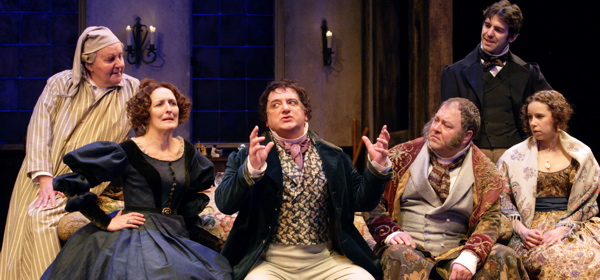

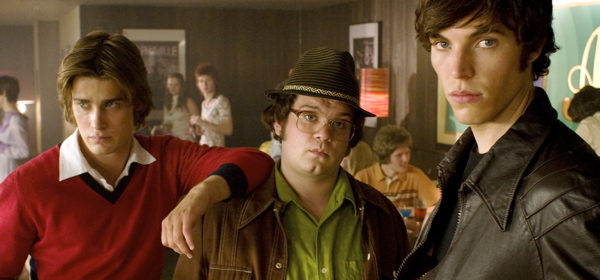
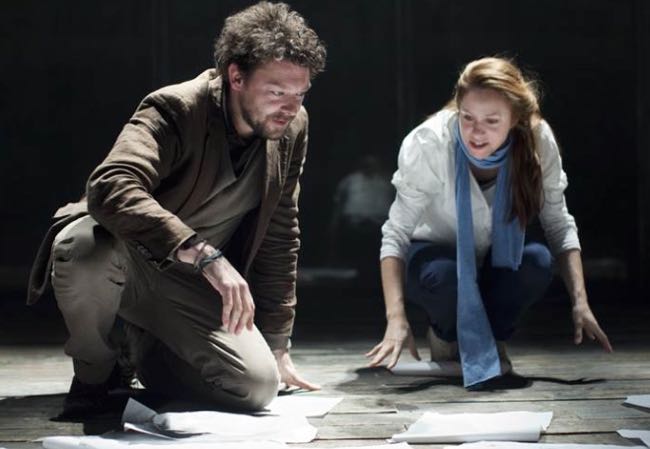
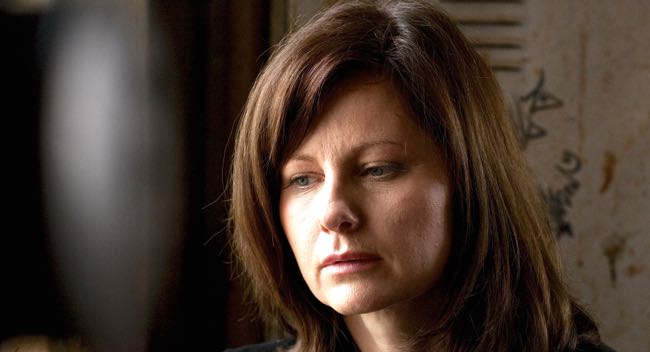
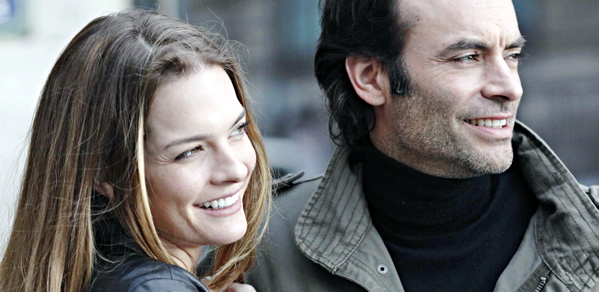
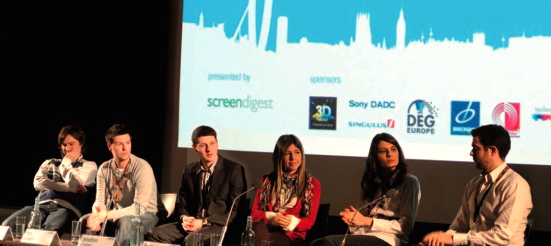


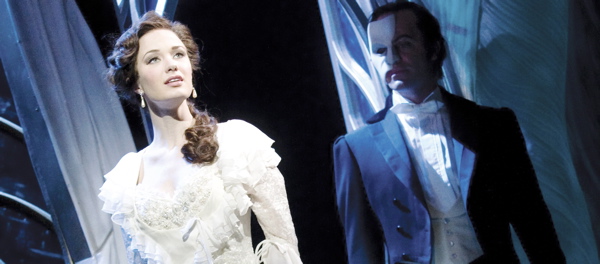
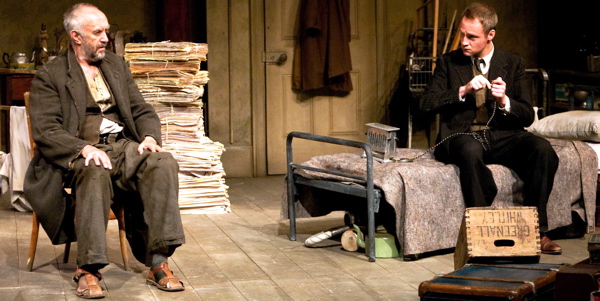
West End theatre thrives on excellence and originality
By Ray Bennett
LONDON – If all the world’s a stage, then it never has been more true than in the British capital right now. The nation’s economy is in dire straits, but that hasn’t stopped theatergoers from flocking to the West End, where attendance last year topped 14 million and boxoffice revenue hit a record £500 million ($775 million).
“It’s been an extraordinary year of hits, with very few misses,” says producer Nica Burns, chair of the Society of London Theatre, which represents all 52 of the city’s playhouses. “We’ve just had an outstanding time.”
Hits have included classics from Beckett (“Waiting for Godot” with Ian McKellen and Patrick Stewart, pictured top) and Chekhov (“Ivanov”) to Shakespeare (“Hamlet”, starring Jude Law, pictured below) and Tennessee Williams (“A Streetcar Named Desire”, starring Rachel Weisz, pictured below); new plays that deal with a modern English family (“Jerusalem”) and U.S. capitalism (“Enron”) and World War I (“War Horse”); long-running musicals such as “Les Miserables,” “The Phantom of the Opera” and “Mamma Mia!”; and new tuners including “Sister Act” and “Priscilla: Queen of the Desert.”
And they keep coming. “Legally Blonde” is a smash hit; Andrew Lloyd Webber’s “Phantom” sequel “Love Never Dies” was given a mixed critical reception but opened with a £9 million advance, more than it cost to put on; and the hit Broadway revival of “Hair” recently has transferred to the West End.
The current success owes to several factors, not least of which is a high standard of excellence. Critics have joined the public in being generally bowled over by the range and quality of what has been presented of late.
Two more reasons for the growing appreciation of what’s onstage: The lackluster state of British film and television means local talent is gravitating to the theater; and the development of well-trained directors. Almeida artistic director Michael Attenborough says: “TV in the U.S. is infinitely stronger. Most U.K. sitcoms are pathetically vulgar and crude.”
Meanwhile, the current crop of top stage directors is among the most innovative and distinctive to date, with Rupert Goold (“Enron”), Michael Grandage (“Hamlet,” “Red”), Howard Davies (“All My Sons”), Christopher Morahan (“The Caretaker”), Ian Rickson (“Jerusalem”) and Nicholas Hytner (“London Assurance,” “The Habit of Art”) following in the footsteps of Sam Mendes, Richard Eyre, Stephen Daldry and Trevor Nunn. Burns says simply, “We train great directors.” It shows.
Burns, who runs Nimax Theatres with U.S. producer Max Weitzenhoffer, adds: “Not only are more people coming, they’re paying more money to see the plays and musicals. Last year, it was a coincidence that so many plays came to fruition in one performing year. It was very much the year of the play. But that doesn’t mean the musicals were struggling — it means the plays did better.”
Theaters work hard to present a collective face to their public, Burns says: “We are very collaborative; while we compete for audiences, we don’t compete between ourselves at all on the big picture, and we work very closely to further our industry.”
There is a strong relationship between commercial theaters and nonprofit companies that rely on subsidies from the government’s Arts Council in addition to sponsorships and boxoffice. The National, Royal Court, Donmar Warehouse, Almeida and the Chichester Festival play key roles in the development of new plays. Current smashes “Jerusalem,” written by Jez Butterworth, and “Enron,” by Lucy Trebble, grew within that system.
“Jerusalem,” for which Mark Rylance (pictured above with Alan David) won the Olivier Award for best actor, was commissioned in 2002. “Enron,” which opened recently on Broadway, was commissioned in 2006 and took three years to reach the stage at Chichester. Burns says: “That’s really quite short. Nearly all that time is taken in writing, re-writing and workshopping.”
One of the biggest draws to the West End is “War Horse,” adapted at the National by Nick Stafford from Michael Morpugo’s World War I-set novel. Featuring live-sized puppets, the play transferred to the New London Theatre, where it is booking through February.
The National’s executive director, Nick Starr, says 43% of the 700,000 additional people who bought tickets for West End plays last year went to “War Horse”. He says, “There were real efficiencies involved in spinning it out of the National. It was not complicated in terms of the physical set, but the horse team and the puppets made it an enormous backstage enterprise.” The play is bound for Broadway next year.
Nonprofit theater companies also help in attracting big names and it’s something on which commercial producers rely, Attenborough says: “A healthy subsidised sector is really important,” he says. “Above all, they want the company producing it to have the very best actors. They don’t want to hear that the play works but the actors aren’t there. They want to get into partnership with us or the Donmar because the best actors want to work with us.”
“Just having a high-level creative team isn’t going to get people in,” Grandage says. “A big star is an obvious way to draw an audience’s attention, but it’s best when it’s a package of a tried-and-tested creative team with high-level talent and a big play, a big author.”
Oscar winner Kevin Spacey also has proved a success as artistic director at the Old Vic, a nonprofit that relies on private funds and boxoffice. Tom Stoppard’s “The Real Thing,” starring Toby Stephens, recently opened there, and Spacey has lent his star power to several productions including “Speed-the-Plow” co-starring Jeff Goldblum.
Not everything is a hit, however. “Spring Awakening,” a Broadway success, got fabulous reviews, but the public didn’t go even though it went on to win the Olivier for best new musical. “None of us in the community could understand,” Burns says. “It wasn’t my show, but it was brilliant. … ‘Wicked’ got mixed reviews, and it’s the biggest hit.”
As a result, producers do everything they can to keep budgets tight. Producer Sonia Friedman says that whereas “Legally Blonde” cost about $15 million to mount on Broadway, she did it in London for $3.8 million. She adds that “La Cage aux Folles” and “A Little Night Music” cost about $5 million apiece in New York but $1.1 million each in London.
“For ‘Legally Blonde,’ we looked at the whole production and worked out what we needed to keep in order to make it work and lost the elements that made it so expensive, mainly the huge physical production,” she says. “It was a very interesting exercise, but we don’t need those high budgets.”
As a result, the West End is able to offer a greater range of ticket prices than is typical on Broadway. Burns says: “We have always had a system where we have a huge amount of prices, and at most theatres there will be what we call ‘day seats’ at £20. We’re more and more like airline tickets: If you want to come on Saturday night, you’ll have to pay the full price; if you are willing to come earlier in the week, you can shop around for a discount.”
It’s working. It also helps that, as Attenborough says, “It seems in London that there’s almost a determination by people to go out to the theater.”
This story appeared in The Hollywood Reporter.